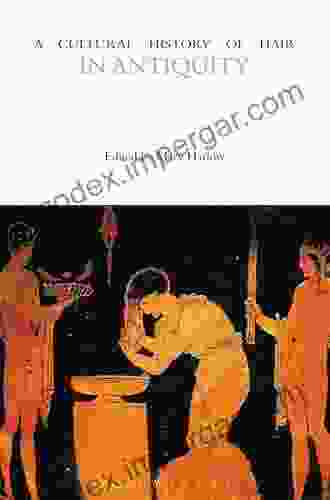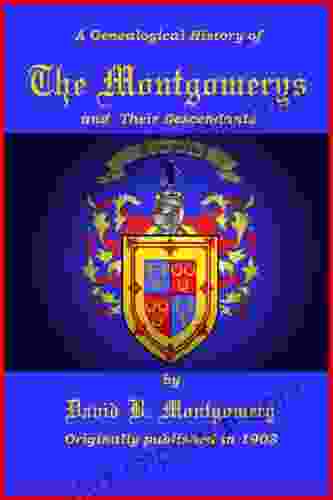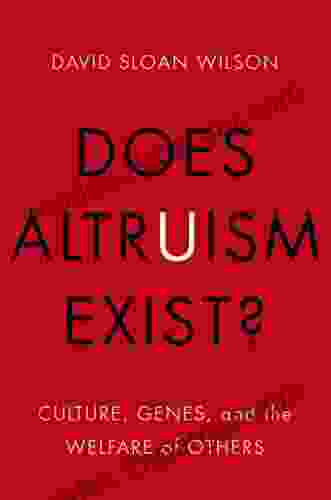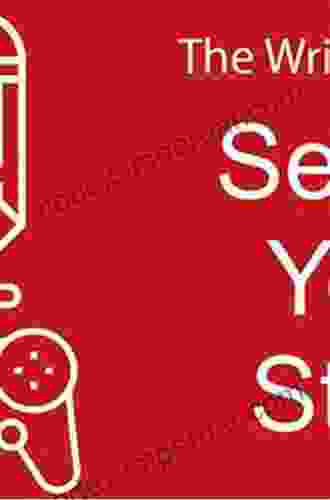Culture, Genes, and the Welfare of Others: Foundational Questions in Science

: Unraveling the Human Social Enigma
Humankind is a social species, intricately connected through a web of relationships and dependencies. The question of what drives our social behavior has long fascinated scientists, philosophers, and scholars alike. In the realm of science, the interplay between culture, genes, and the welfare of others has emerged as a central theme, offering a glimpse into the multifaceted nature of human sociality.
4.3 out of 5
| Language | : | English |
| File size | : | 782 KB |
| Text-to-Speech | : | Enabled |
| Screen Reader | : | Supported |
| Enhanced typesetting | : | Enabled |
| Word Wise | : | Enabled |
| Print length | : | 191 pages |
The Cultural Dimension: Shaping Social Norms
Culture plays a profound role in shaping our social interactions. It encompasses the beliefs, values, customs, and practices that are transmitted from one generation to the next. Cultural norms dictate what is considered acceptable and desirable behavior, influencing everything from our communication styles to our mating practices.
Cultural variation is a testament to the adaptability of human societies. Different cultures have evolved unique mechanisms to promote cooperation and maintain social Free Download. Some cultures emphasize individualism, while others prioritize collectivism. These cultural differences have a significant impact on how we interact with others and the extent to which we are willing to sacrifice personal well-being for the benefit of the group.
The Genetic Dimension: The Evolutionary Perspective
Alongside cultural influences, our genes also play a part in shaping our social behavior. Evolutionary theory suggests that traits that enhance cooperation and altruism have been favored by natural selection over time. Genes that promote empathy, trustworthiness, and a desire to help others have given individuals an evolutionary advantage, contributing to the survival and success of our species.
Genetic studies have identified specific genes associated with social traits. For example, the oxytocin receptor gene has been linked to empathy and prosocial behavior. Variations in this gene may account for individual differences in how we respond to the needs of others.
The Interplay: Culture-Gene Co-evolution
The relationship between culture and genes is not a one-way street. Culture and genes interact and co-evolve, creating a dynamic feedback loop. Cultural practices can influence the expression of genes, and genes can shape the development of cultural norms.
For instance, in societies where cooperation is highly valued, individuals with genetic predispositions for empathy and altruism may be more likely to thrive and pass on their genes. Conversely, in societies where competition is emphasized, individuals with genes that promote self-interest may have a greater advantage.
Welfare of Others: The Ultimate Test
At the heart of human sociality lies the concept of the welfare of others. Why are we willing to sacrifice our own time, resources, and even our lives for the benefit of others? This fundamental question has puzzled scientists for centuries.
Research suggests that empathy and a sense of fairness play a crucial role in motivating prosocial behavior. When we witness someone in need, our brains activate circuits associated with empathy, triggering a desire to help. Additionally, norms of reciprocity and cooperation can enhance our willingness to assist others, as we anticipate that they will return the favor in the future.
: The Path to Understanding
The relationship between culture, genes, and the welfare of others is a complex and multifaceted one. By examining the interplay between these factors, scientists are gaining a deeper understanding of the biological and social foundations of human cooperation. This knowledge has profound implications for our society, as it can help us to foster cooperation and reduce conflict.
The book 'Culture, Genes, and the Welfare of Others: Foundational Questions in Science' delves into these fascinating topics, providing a comprehensive overview of the latest research and thought-provoking insights into the nature of human sociality. It is a must-read for anyone interested in exploring the mysteries of human behavior and the path towards a more harmonious and cooperative world.
4.3 out of 5
| Language | : | English |
| File size | : | 782 KB |
| Text-to-Speech | : | Enabled |
| Screen Reader | : | Supported |
| Enhanced typesetting | : | Enabled |
| Word Wise | : | Enabled |
| Print length | : | 191 pages |
Do you want to contribute by writing guest posts on this blog?
Please contact us and send us a resume of previous articles that you have written.
 Book
Book Novel
Novel Page
Page Chapter
Chapter Text
Text Story
Story Genre
Genre Reader
Reader Library
Library Paperback
Paperback E-book
E-book Magazine
Magazine Newspaper
Newspaper Paragraph
Paragraph Sentence
Sentence Bookmark
Bookmark Shelf
Shelf Glossary
Glossary Bibliography
Bibliography Foreword
Foreword Preface
Preface Synopsis
Synopsis Annotation
Annotation Footnote
Footnote Manuscript
Manuscript Scroll
Scroll Codex
Codex Tome
Tome Bestseller
Bestseller Classics
Classics Library card
Library card Narrative
Narrative Biography
Biography Autobiography
Autobiography Memoir
Memoir Reference
Reference Encyclopedia
Encyclopedia Brian Abrams
Brian Abrams Brian K Wheeler
Brian K Wheeler Wilfrid Hodges
Wilfrid Hodges Julia Lodge
Julia Lodge C Jane Taylor
C Jane Taylor Brad Bertelli
Brad Bertelli Brandon Kirk
Brandon Kirk Zander Fryer
Zander Fryer C Lynn Williams
C Lynn Williams Bob Krulish
Bob Krulish Caroline Vaughan
Caroline Vaughan Sam Fury
Sam Fury Norberto R Keppe
Norberto R Keppe Brian K Jones
Brian K Jones Jen Manion
Jen Manion Branden Holmes
Branden Holmes Brent M Jones
Brent M Jones C J Pike
C J Pike Brad Meltzer
Brad Meltzer Bryan W Van Norden
Bryan W Van Norden
Light bulbAdvertise smarter! Our strategic ad space ensures maximum exposure. Reserve your spot today!

 Caleb CarterUnveiling the Cultural Tapestry of Hair in Antiquity: A Journey Through the...
Caleb CarterUnveiling the Cultural Tapestry of Hair in Antiquity: A Journey Through the... Reginald CoxFollow ·6.5k
Reginald CoxFollow ·6.5k Boris PasternakFollow ·19.6k
Boris PasternakFollow ·19.6k Dwayne MitchellFollow ·17k
Dwayne MitchellFollow ·17k Oliver FosterFollow ·7k
Oliver FosterFollow ·7k Giovanni MitchellFollow ·16k
Giovanni MitchellFollow ·16k Ashton ReedFollow ·18.2k
Ashton ReedFollow ·18.2k Ian MitchellFollow ·5.9k
Ian MitchellFollow ·5.9k Hamilton BellFollow ·2k
Hamilton BellFollow ·2k

 Gary Cox
Gary CoxUnlocking Meaning and Purpose in Life: An Exploration of...
In an increasingly...

 Eric Hayes
Eric HayesMemoirs of the Early Pioneer Settlers of Ohio Illustrated
A Window into the Lives of Courageous...

 J.R.R. Tolkien
J.R.R. TolkienThe Montgomerys and Their Descendants: A Saga of Courage,...
Prepare to be...

 Avery Simmons
Avery SimmonsThe Rifle Musket: The Dawn of Modern Infantry Warfare
: The rifle musket, a revolutionary...

 Jesse Bell
Jesse BellUnlock the Power of Excel with VBA and Macros: A...
Microsoft Excel is a powerful spreadsheet...
4.3 out of 5
| Language | : | English |
| File size | : | 782 KB |
| Text-to-Speech | : | Enabled |
| Screen Reader | : | Supported |
| Enhanced typesetting | : | Enabled |
| Word Wise | : | Enabled |
| Print length | : | 191 pages |












